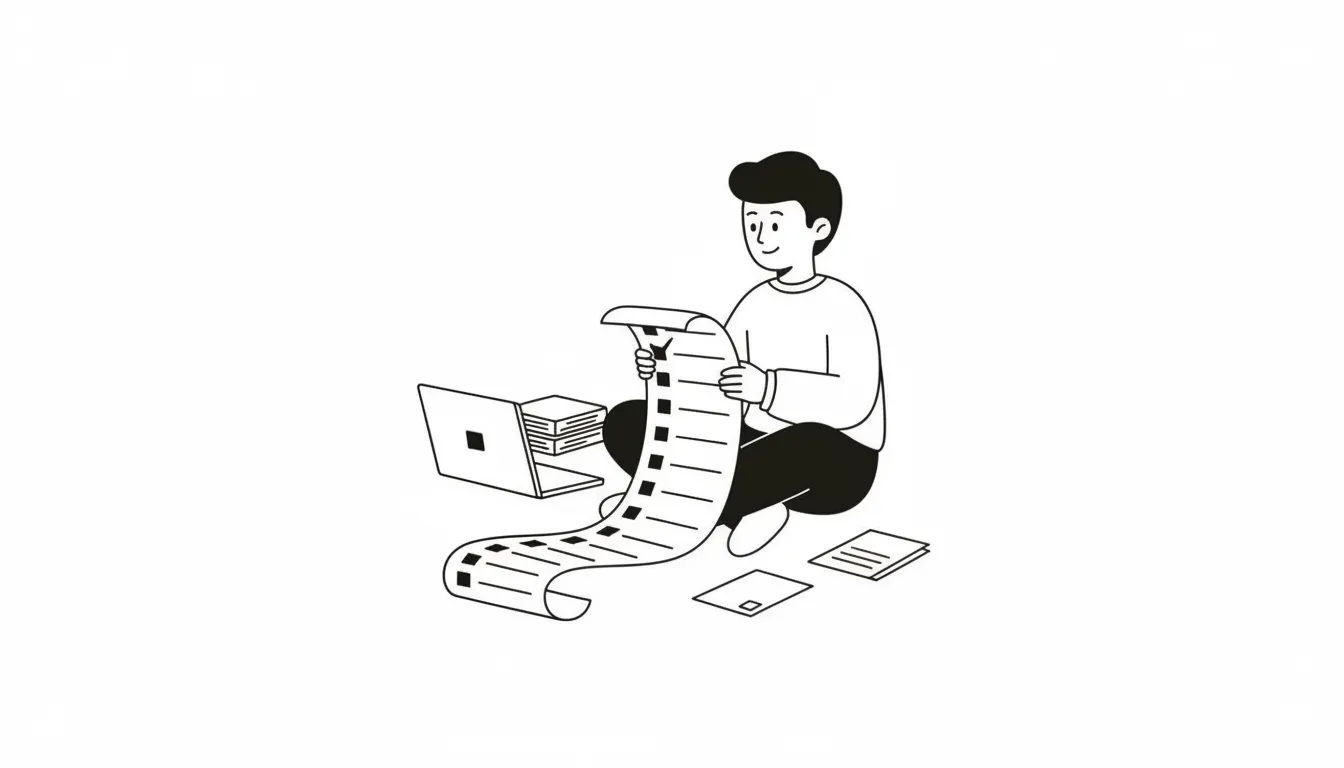
List of 50 Common Phrasal Verbs with Examples [Updated 2025]
Are you fed up with studying phrasal verbs? Check out this video post to SEE and understand Phrasal Verbs. No studying!



Table of contents
Phrasal verbs can be a real pain; they can be confusing, difficult to remember, hard to understand and even tougher to incorporate into our vocabulary. However, there is hope and this comes with meaningful practice and input. We’ve already seen some cool ways in which you can learn phrasal verbs more easily. For instance, I’ve explained the grammar behind phrasal verbs (not the logic!). But today, I’m bringing my very first video on phrasal verbs, where I don’t explain them; I act them, so it’s easier for you to remember. And if you can’t understand the meaning of some of them, you can read the definitions below or download a pdf document with all the definitions and examples.
In order to understand the phrasal verbs in the video and the definitions below, you should know that sb. stands for «somebody» and sth. stands for «something».
List of 50 Common Phrasal Verbs with Examples
Go off
- Meaning: (of an alarm) begin to sound.
- Example:
From the time my alarm clock goes off, I am beginning my workout.
Wake (sb.) up
- Meaning: emerge or cause someone to emerge from sleep.
- Example:
I woke up at 7 o’clock.
She woke him up gently.
Get (sb.) up
- Meaning: rise or cause someone to rise from bed after sleeping.
- Example:
I got up feeling tired and disoriented.
We got him up because we had to go to a friend’s house.
Put sth. on
- Meaning: place a garment, jewellery, etc. on part of one’s body
- Example:
I put on my watch and set off a little late.
Dress up
- Meaning: put on smart or formal clothes.
- Example:
I only dress up on special occasions, like weddings or other celebrations.
Tidy up (sth.)
- Meaning: bring order to; arrange neatly.
- Example:
The children don’t like tidying up their bedrooms, but they always do it.
Switch sth. on
- Meaning: start the flow or operation of something by means of a tap, switch, or button.
- Example:
She switched on the TV to watch her favourite show.
Take sth. off
- Meaning: remove clothing from one’s or another’s body.
- Example:
I took off my shoes and lay down on the sofa.
Warm up
- Meaning: prepare for physical exertion or a performance by exercising or practising gently beforehand.
- Example:
I always warmup thoroughly before going out for a jog.
Work out
- Meaning: engage in vigorous physical exercise.
- Example:
John tries to work out three or four times a week at the local gym.
Let sb. in
- Meaning: admit someone to a room, building, or area.
- Example:
We let our lovely dog in the house every morning.
Come in
- Meaning: enter a room, building, or other place.
- Example:
Please, come in and sit down.
Move over
- Meaning: adjust one’s position to make room for someone else.
- Example:
Could you guys move over so I can sit down as well, please?
Kick sb. out
- Meaning: expel or dismiss someone.
- Example:
They kicked me out of the club after the fight.
Drink up
- Meaning: quickly consume the rest of a drink.
- Example:
She drank up what was left of her beer and left in a hurry.
Pick up
- Meaning: answer a telephone call.
- Example:
I kept calling her but she wouldn’t pick up, so I couldn’t tell her the news.
Speak up
- Meaning: talk more loudly.
- Example:
(On the phone) Could you speak up, please? I can’t hear you properly.
Hang up (on sb.)
- Meaning: end a telephone call.
- Example:
She hung up on me when I told her I what I’d done.
Chill out
- Meaning: calm down and relax.
- Example:
At the end of the day, I just want to put my feet up and chill out before going to bed.
Doze off
- Meaning: fall lightly asleep.
- Example:
I don’t take a real nap after lunch, I simply doze off for a bit in front of the TV.
Run out of (sth.)
- Meaning: finish one’s supply of something.
- Example:
We’ve run out of eggs; could you go and get some more, please?
Put sth. back
- Meaning: replace something.
- Example:
Remember to put the books back on the shelves when you finish reading them.
Look after sb./sth.
- Meaning: take care of something or someone.
- Example:
I normally ask my parents to look after my dog when I’m on holiday abroad.
Talk back to sb.
- Meaning: reply defiantly or insolently.
- Example:
Unfortunately, all children talk back to their parents from time to time.
Go for sth.
- Meaning: decide on something; choose.
- Example:
(In a restaurant) I think I’ll go for the steak this time. I didn’t like the fish the other day.
Break up (with sb.)
- Meaning: end a romantic relationship with someone.
- Example:
After they broke up, he didn’t leave his house for a week.
Break (sth.) down
- Meaning: stop or cause to stop functioning.
- Example:
My TV seems to be breaking down all the time.
Hang (sth.) out (to dry)
- Meaning: hang from a clothes line to dry.
- Example:
I don’t mind ironing, but I hate hanging the clothes out to dry.
Wash (sth.) up
- Meaning: clean crockery and cutlery after use.
- Example:
I don’t have to wash up any more; I bought myself a dishwasher.
Warm sth. up
- Meaning: reheat previously cooked food or drink.
- Example:
I sometimes have to warm up my coffee because it takes me a whole morning to drink it.
Heat sth. up
- Meaning: make or become hot or warm.
- Example:
I think we can heat up yesterday’s pizza and have it for dinner, right?
Look for sth./sb.
- Meaning: try to find something or someone.
- Example:
Jack was looking for his phone everywhere, but couldn’t find it.
Fall out with sb.
- Meaning: have an argument and stop being friends.
- Example:
They were flatmates for two years, but then they fell out and never spoke to each other again.
Come down with an illness
- Meaning: begin to suffer from a specified illness.
- Example:
Oh, god! I think I’m coming down with flu. I might not go to work tomorrow.
Tear sth. out
- Meaning: to pull or be pulled apart, or to pull pieces off.
- Example:
He tore out the pages that he didn’t want anyone to read.
Rip sth. up
- Meaning: tear something violently into small pieces so as to destroy it.
- Example:
She ripped up her pile of old letters and put them in the bin.
Plug sth. in
- Meaning: connect an electrical appliance to the mains by inserting a plug in a socket.
- Example:
I need to plug in my phone; it’s completely out of juice.
Pay sb./sth. back
- Meaning: repay some money or a loan to someone.
- Example:
If you lend me the money, I swear I’ll pay you back by Friday.
Print sth. out
- Meaning: produce a paper copy of information stored on a computer.
- Example:
My boss asked me to print out the report and give it to him.
Give in (to sb./sth.)
- Meaning: accept someone’s wish or cease fighting; admit defeat.
- Example:
He reluctantly gave in to the pressure they were putting on him.
Work sth. out
- Meaning: find or try to find the answer to something; solve a sum or determine an amount by calculation.
- Example:
I couldn’t work out whether it was a band playing or a record.
She worked out sums on her way to school.
Give up
- Meaning: stop making an effort; admit defeat.
- Example:
It’s not like you to give up so easily on an assignment so early after starting school.
Put up with sth./sb.
- Meaning: tolerate, endure, bear.
- Example:
I’m leaving so I don’t have to put up with you anymore.
Turn sth. on
- Meaning: adjust a tap or switch in order to start the operation or flow of something.
- Example:
She turned her PC on and opened her browser.
Log in
- Meaning: go through the procedures to begin use of a computer, database, or system.
- Example:
I tried to log in with my username, but I couldn’t remember my password.
Log out
- Meaning: go through the procedures to conclude use of a computer, database, or system.
- Example:
Jim logged out of Facebook and resumed his homework.
Write (sb.) back (to sb.)
- Meaning: respond to someone’s letter or email.
- Example:
I emailed the company letting them know about the problem, but nobody wrote back.
Look sth. up
- Meaning: search for and find a piece of information in a book or database.
- Example:
Rachel loves looking up words in the dictionary.
Turn sth. off
- Meaning: stop the operation or flow of something by means of a tap, switch, or button.
- Example:
Nowadays, nobody seems to turn off their mobile phones when going to bed.
Come back
- Meaning: return to a place.
- Example:
The importance of learning the most common phrasal verbs
Phrasal verbs are an important part of the English language. They are often used in everyday speech and in writing. There are many different phrasal verbs, but some are more common than others. It is important to be familiar with the most common phrasal verbs so that you can use them correctly.
There are several reasons why it is important to be familiar with the most common phrasal verbs. First, they can help you to communicate more effectively. If you know the meaning of a phrasal verb, you can use it to express yourself more clearly. Second, phrasal verbs can make your writing more interesting. They can add variety and color to your writing. Finally, understanding common phrasal verbs can help you to understand native speakers of English.
If you are a non-native speaker of English, you may be wondering how you can learn the most common phrasal verbs. There are a few different ways. First, you can try to learn them through context. This means that you pay attention to how they are used in everyday conversation and in writing. Second, you can look them up in a dictionary. This can be a good way to learn the meaning of a new phrasal verb. Finally, you can practice using them in your own writing.
Learning common phrasal verbs is a valuable skill for anyone who wants to improve their English. By taking the time to learn them, you can improve your communication skills and make your writing more interesting.
If you liked this post, please comment and share. Don’t forget to keep up with KSE Academy’s latest news on Facebook, Twitter & YouTube.
Oh, and don’t forget to keep smiling!
Mariam says:
The video was funny and I have learnt a lot.Thanks
Luis @ KSE Academy says:
Thanks for your feedback! 🙂
ESTELA says:
Thank you¡ I spend so much time surfing your web¡¡ You make my dialy learning esay¡
Luis @ KSE Academy says:
Thank you so much for your feedback. Take care and keep learning!